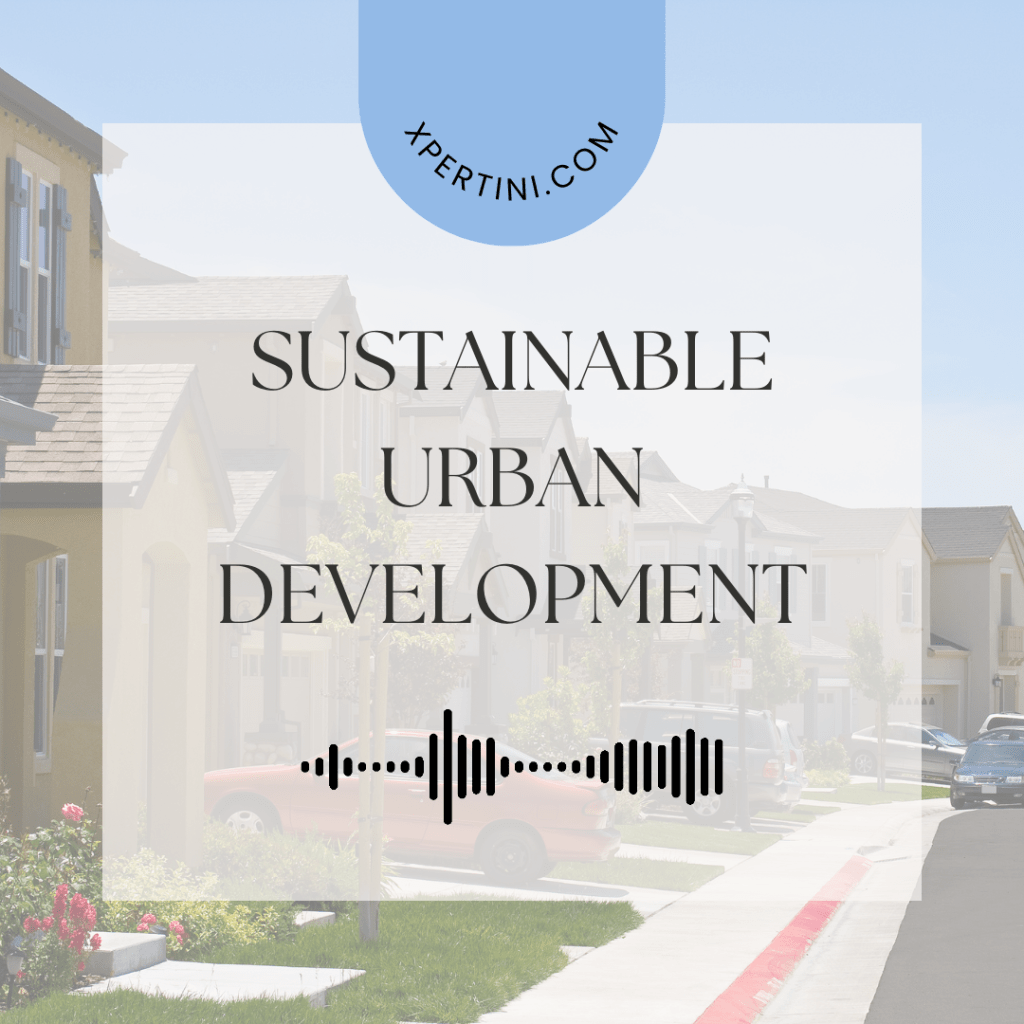Sustainable Urban Development
Course Summary
In this comprehensive course on Sustainable Urban Development, aspiring professionals and knowledge seekers delve into urban planning through a lens of sustainability. The course, designed for those aspiring to forge a career in this field or aiming to augment their existing knowledge, unfolds a narrative of urban development shaped by eco-conscious principles.
Participants peep into historical evolution of urban landscapes, deciphering the key lessons gleaned from the annals of urban planning. Understanding the past becomes the cornerstone for envisioning sustainable futures. The course utilizes a strategic approach to simplify complex concepts, breaking them down into digestible frameworks and models.
The exploration extends to the core principles and frameworks governing sustainable urban development, substantiated by illuminating case studies. These real-world applications provide invaluable insights, elucidating successful strategies and cautionary tales. By incorporating key principles, the course ensures a seamless transfer of knowledge, promoting engagement and understanding among learners.
The course then shifts its focus towards environmental impact and mitigation strategies in urbanization. Participants grapple with the assessment of environmental challenges, equipping themselves with a robust toolkit of strategies to mitigate adverse effects.This segment employs a pedagogical approach that emphasizes experiential learning, fostering a practical understanding of the subject matter.
Social equity in urban planning emerges as a pivotal theme, revealing the dynamics of addressing social disparities in urban development. Community engagement and participatory planning take center stage, emphasizing the imperative of inclusive practices in shaping urban environments.
Infrastructure and transportation solutions form another crucial facet of the course. Sustainable infrastructure design and eco-friendly transportation systems become focal points, weaving together the fabric of a resilient urban landscape. The course strictly follows key principles, presenting these concepts in a coherent and accessible manner.
The integration of technology in smart cities becomes a central theme, elucidating the role of technological advancements in fostering sustainability. From efficient energy management to data-driven decision-making, participants gain a comprehensive understanding of the technology woven into modern urban planning.
Green building and urban design principles unfold, offering a detailed examination of sustainable architectural practices. The course encapsulates the balance between aesthetic design and environmental responsibility, providing a testament to the possibilities of harmonizing human-made structures with the natural domain.
As participants traverse through these meticulously curated lessons, the course not only imparts knowledge but also cultivates critical thinking and problem-solving skills. The journey concludes with an exploration of diverse career paths, networking opportunities, and avenues for continuous professional development in the field of Sustainable Urban Development.
In summary, this course is not just an academic undertaking but a pragmatic exploration of sustainable urban development—a journey that equips participants with the knowledge, skills, and perspectives necessary to navigate the complexities of urban planning in an environmentally conscious world.
Course Overview
Sustainable Urban Development is a crucial course that delves into the principles, strategies, and practices essential for creating environmentally friendly, socially equitable, and economically viable urban spaces. Participants will gain a comprehensive understanding of the challenges and opportunities in modern urban planning, focusing on sustainability to address global urbanization issues.
Course Objectives
Understand the concept and significance of sustainable urban development.
Analyze the historical evolution and factors influencing urban development.
Explore the principles and frameworks for designing sustainable cities.
Evaluate the environmental impact of urbanization and propose mitigation strategies.
Examine social equity issues in urban planning and development.
Implement sustainable infrastructure and transportation solutions.
Investigate the role of technology in smart and sustainable cities.
Learn effective community engagement and participatory planning techniques.
Develop skills in green building and urban design practices.
Explore diverse career opportunities in sustainable urban development.
Course Outcomes
Able to define and articulate the principles of sustainable urban development.
Analyze historical examples of urban development to identify lessons for the present and future.
Design sustainable urban plans, considering environmental, social, and economic factors.
Evaluate the environmental impact of existing urban areas and propose sustainable solutions.
Assess and address social equity issues in urban planning.
Demonstrate proficiency in implementing sustainable infrastructure and transportation solutions.
Integrate technology effectively into urban planning for smart and sustainable cities.
Engage communities in the planning process, fostering collaboration and inclusivity.
Participants will apply green building practices and principles to urban design projects.
Explore and identify diverse career opportunities in the field of sustainable urban development.
Course Audience
Urban Planners and Designers
Architects
Environmental Scientists
Civil Engineers
Policy Makers and Analysts
Students aspiring for careers in Sustainable Urban Development
Professionals seeking to enhance their knowledge in the field

